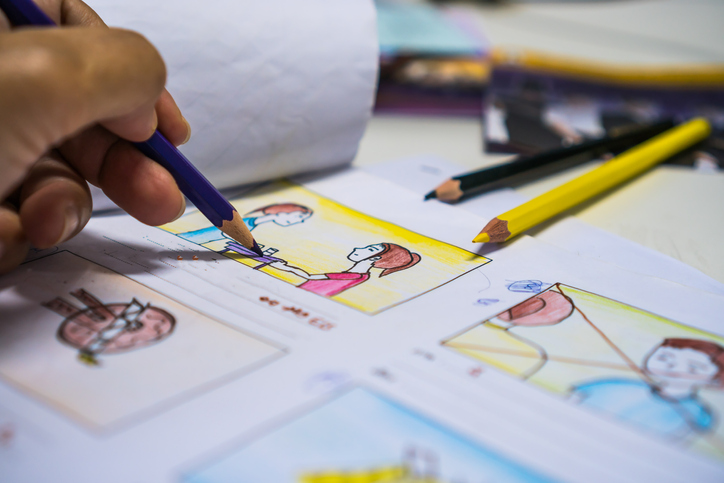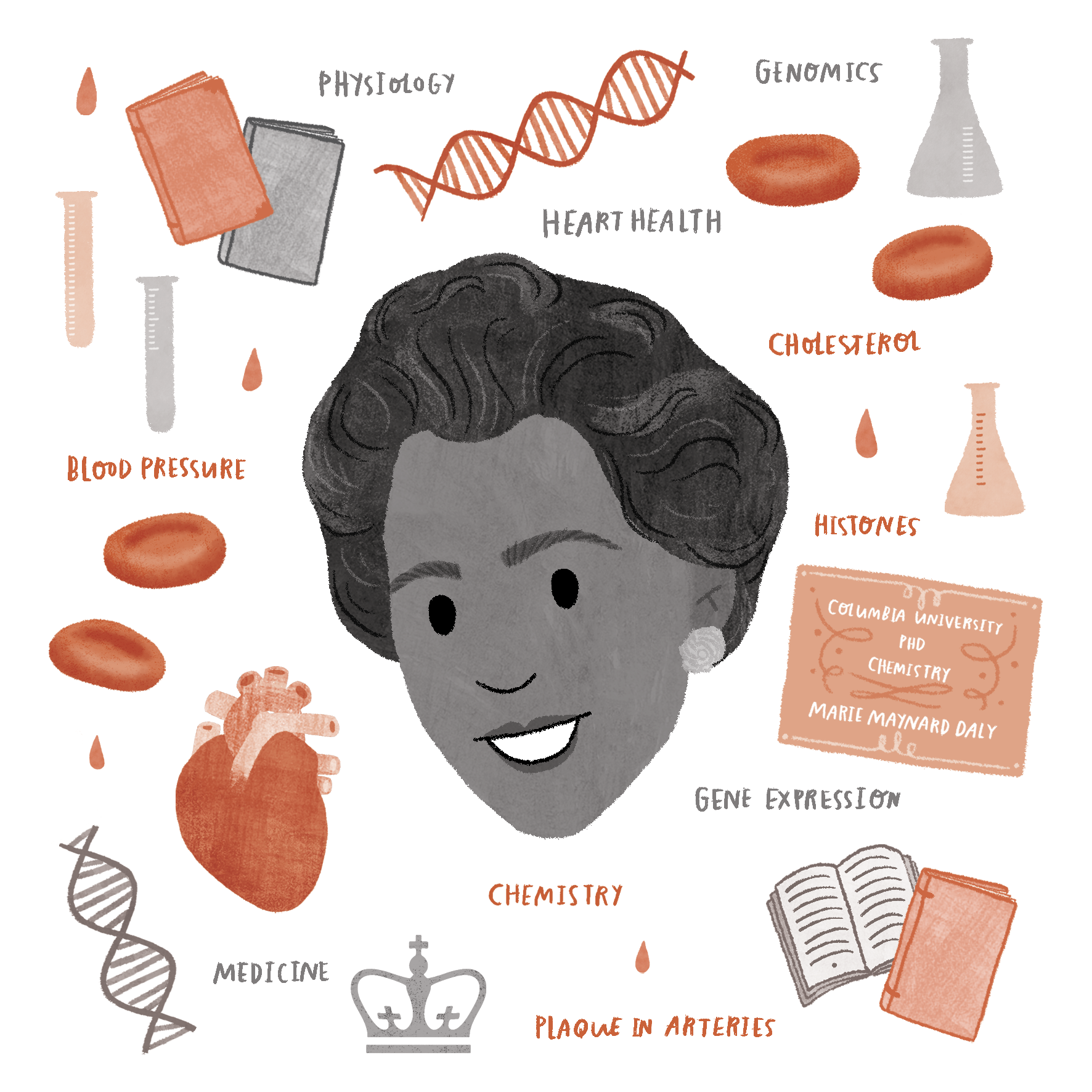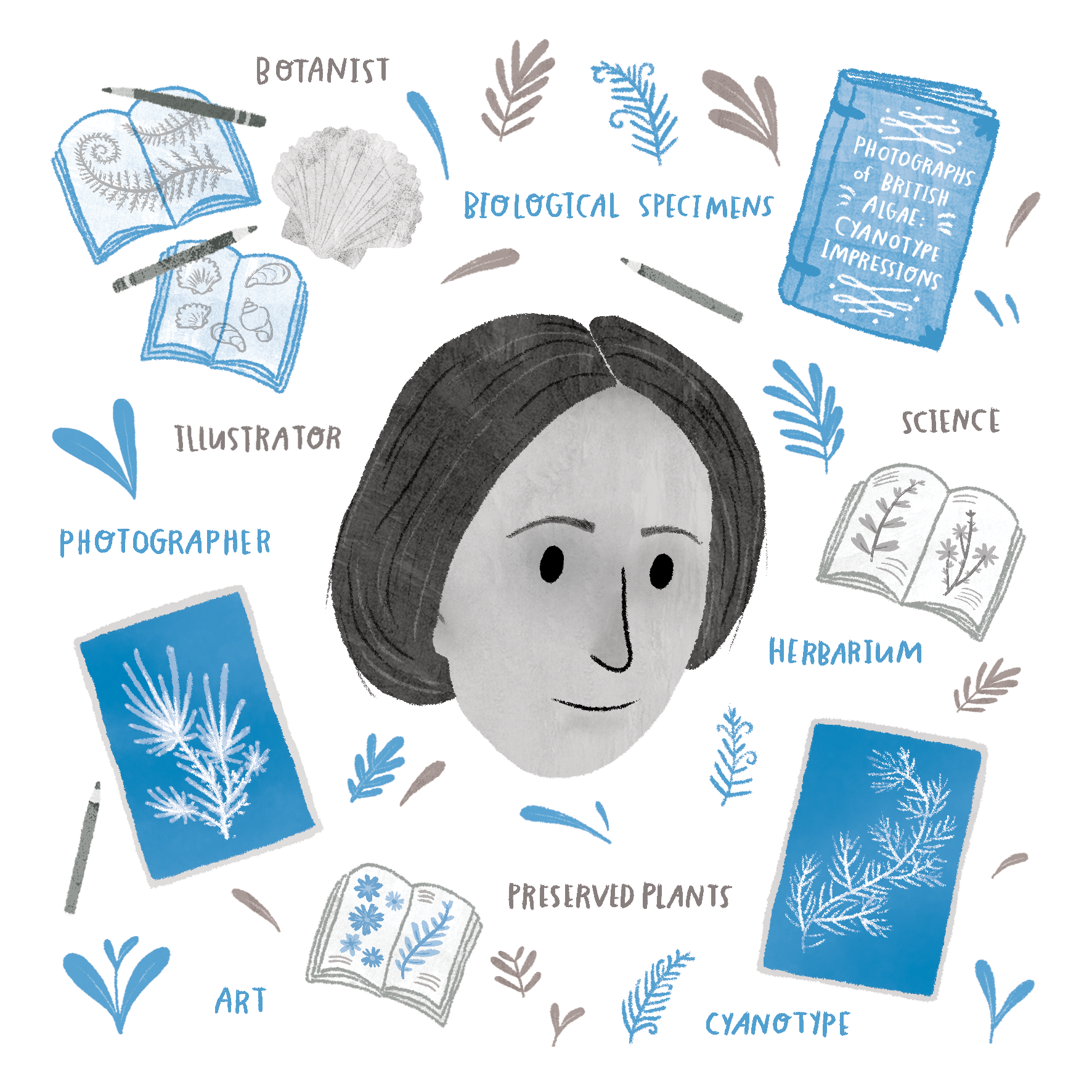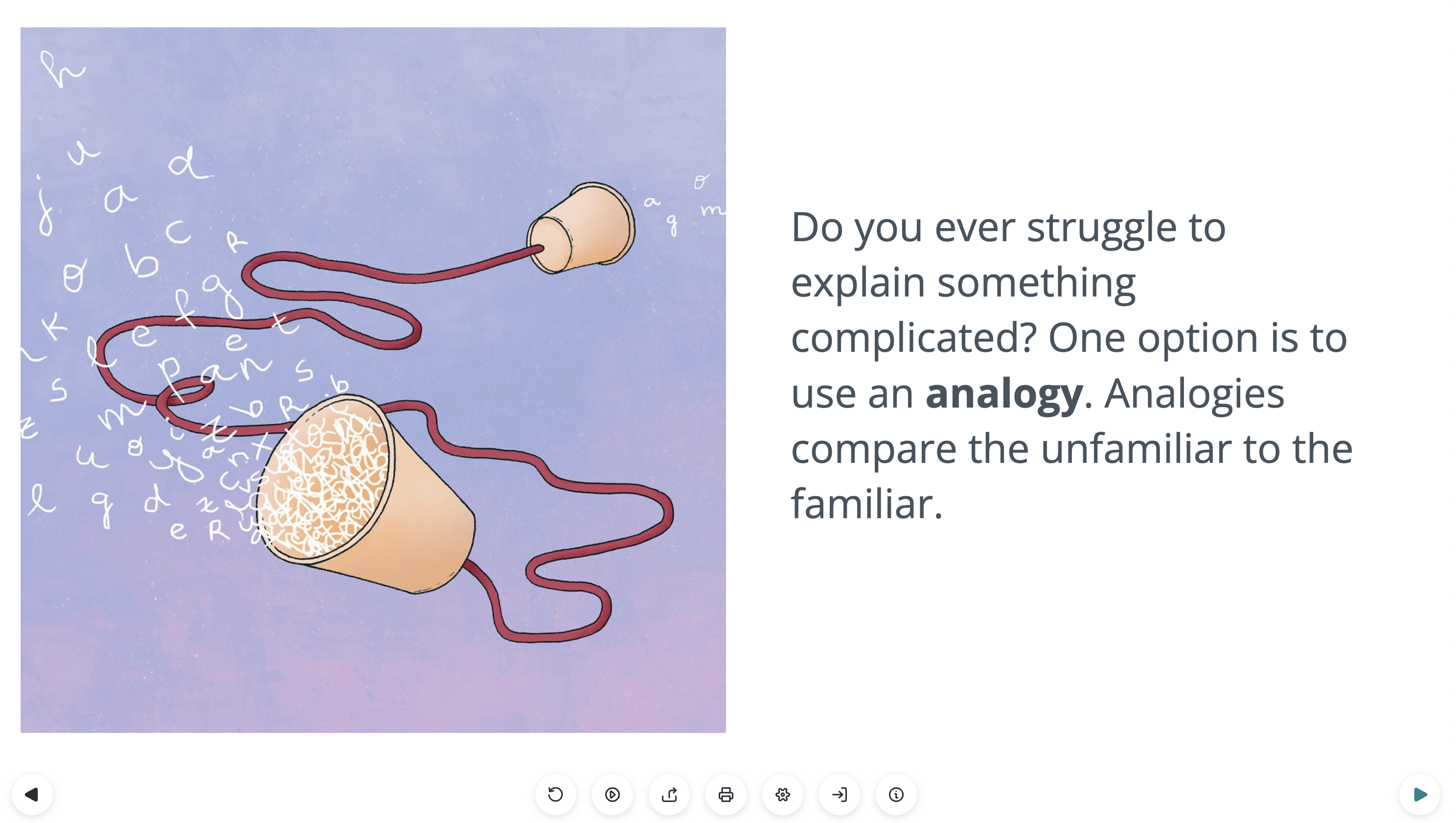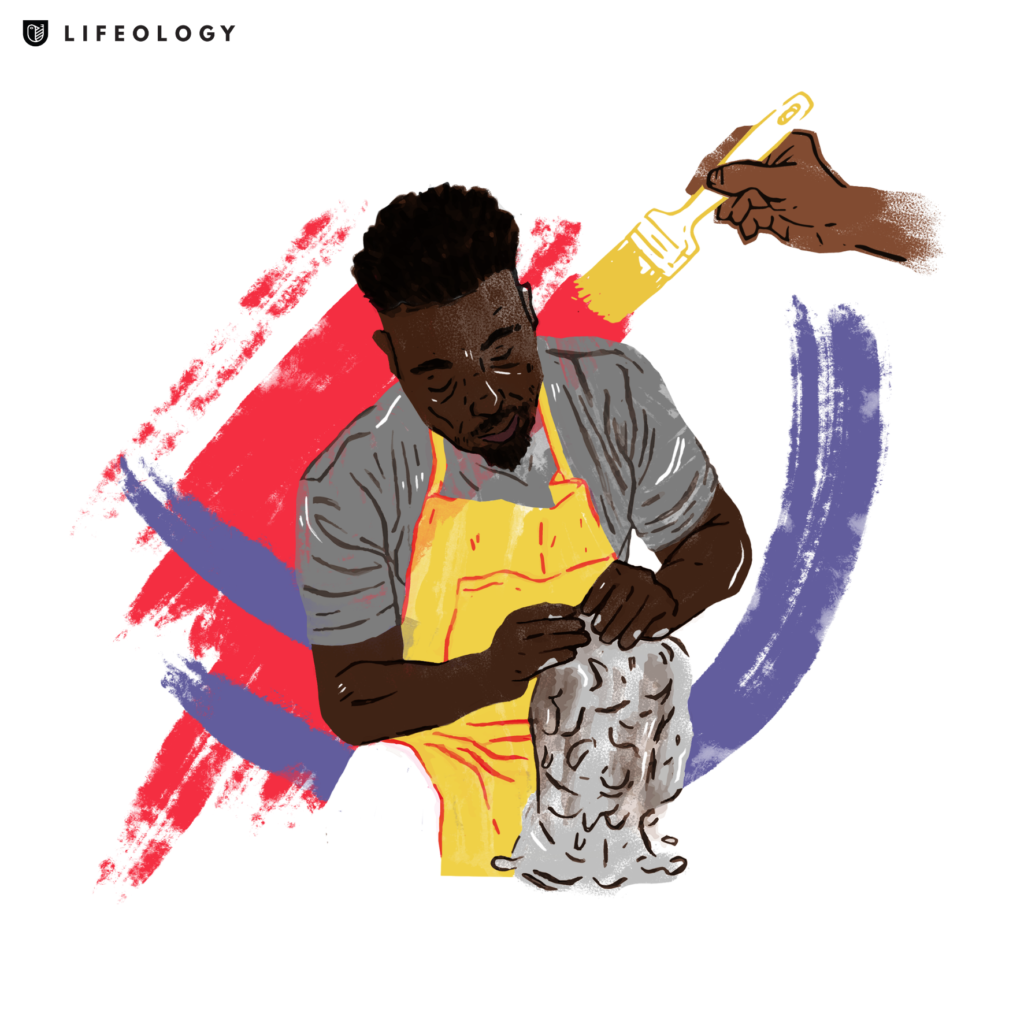
An illustration by Jordan Hunter, from the Lifeology course “How to grow during times of stress and trauma“.
This blog post is by psychotherapist Samantha Carbon, featuring illustrations from a mini-course on stress, trauma and mental wellness written by Dr. Natalia Peart and illustrator Jordan Hunter. All identify as persons of color.
Did you know by the age of 5, an individual will have a sense of understanding their personality, gender, and race? This will be reflected to them by their caregivers and community. They will have a sense of their differences from others. Black children are reminded they are black through acts of racism and prejudice.
Given what is happening socially, politically, and psychologically, today, one of the biggest example governing the world is white supremacy over the black skin.
Most black people have experienced subtle discrimination or disrespect on account of being Black. Furthermore, many individuals will have faced extreme racism, both subtly and explicitly. Since childhood, they will have a common and in some ways exclusive subconscious and unwritten protocol that they follow in a white society not to be misunderstood. Within their subconscious will be their history, values, beliefs, culture and motivations. For example, they will be encouraged to not live up to the stereotypes of how the dominant society sees them. Consequently, black peoples’ learnt beliefs will often be passed onto future generations and become a part of their cultural script.
Most white individuals will often subconsciously associate black people with crime, poverty, struggle and danger before the latter even have a chance to prove themselves otherwise. This negative view on black people has encouraged many to work doubly hard and struggle more than their white counterparts. For many, alienation is the root cause of all social and mental distress.
The black community are hyperviligent when it comes to invisible, hardcore struggles that the rest of the society is oblivious to. This is because for some they are living and breathing poor social housing and poor social economical status. Add to it the pandemic situation and there is a recipe for a complete disaster, since the healthcare industry is also not free of subtle racism. Many black people are suffocating under the weight of racism and have become the sharks of humanity. Many will internalize and suffer in silence as they work unremittingly to meet the expectations of their family, career and broader society.
They will struggle to speak up, as their silence has become their coping strategy. They may refrain from speaking up or against in order to survive and fit in. They may feel their opinions don’t matter. Fears of being socially stranded and fears of retaliation will be prominent in particular in the workplace. Overall, they choose to remain safe and hidden. All human beings strive for autonomy and when there are restrictions on autonomy, the emotions of sadness, anger, despair and trauma will be experienced.
Nevertheless, they will spend a vast portion of their mental energy trying not to attract attention. Black people may find themselves at the receiving end of hatred, injustice and discrimination at workplaces, neighborhoods, and other public places, for example Christian Cooper innocently bird watching in Central Park.
So how is your emotional health during these challenging times? The need for changes to the mental health care and treatment of black people is widely recognized and long overdue. There is compelling and statistical evidence that show that black people are over-represented in mental health services. They may use silence and reliance as ways to cope with stress, because their experiences are nothing new and they are aware of the protocols, they know the drill. These coping strategies may intensify symptoms of anxiety and depression when coupled with negative attitudes, or reluctance to seek mental health support.
In particular, transgenerational trauma continues to hinder progress. Years of enslavement, both figurative and literal, have brought a collective manifestation of psychological conditions of sadness, hostility, self-hatred and self-destructive behaviors. If you are black and have challenges with your mental health, you may become reluctant to ask for help or to comply with treatment, which can increase the likelihood of a personal crisis, leading in some cases to self-harm or harm to others.
When you are experiencing racial stress or trauma, it is essential to put self-care at the top of your agenda. With self-care in place, you can avoid inadvertently causing more pain for yourself and those you love.
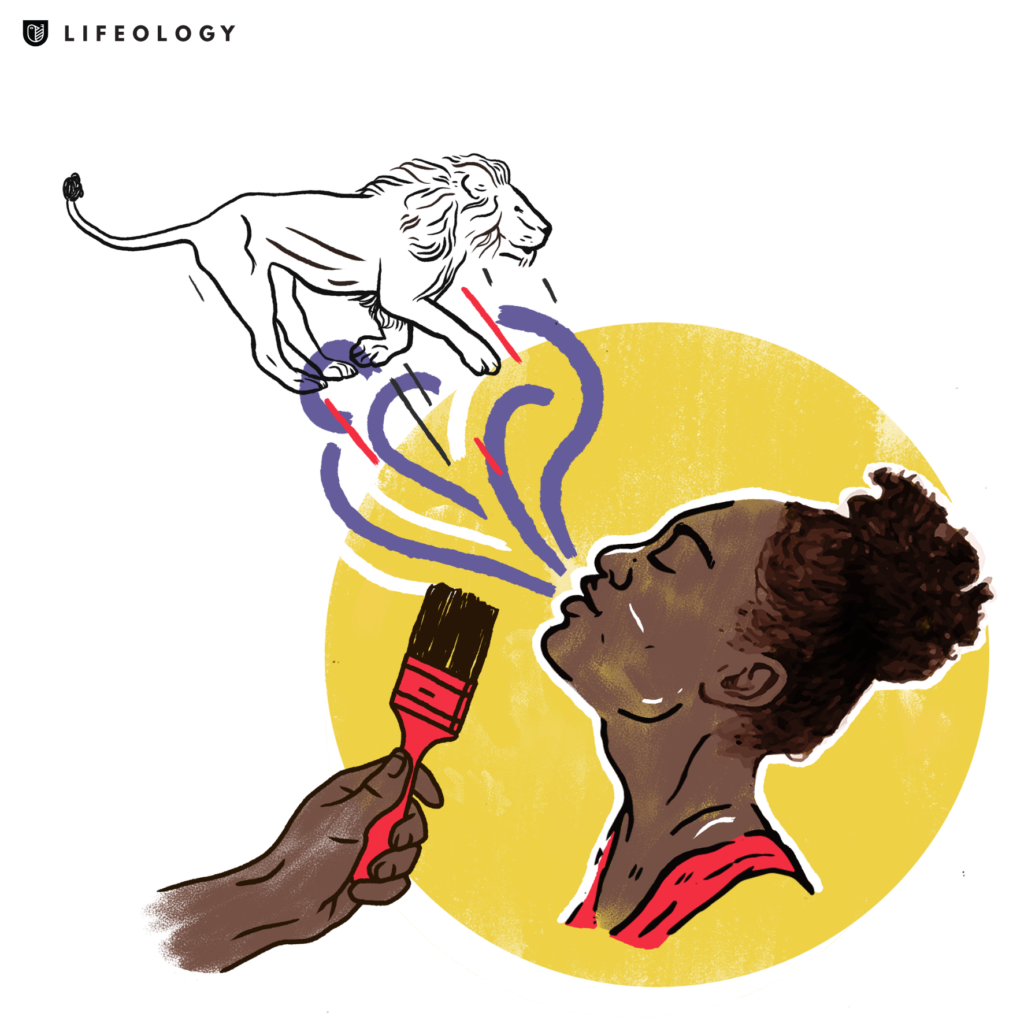
An illustration by Jordan Hunter, from the Lifeology course “How to grow during times of stress and trauma“.
How to Practice Radical Self-Care – 8 Tips
1. Be familiar with your signs of stress and ask for help or support. It’s useful if you can self-monitor, however under challenging times self-assessing maybe problematic, so please be open to feedback from others.
2. Fill your emotional well with positive, comforting thoughts and experiences, which will include rest, relaxation and energizing activities. It’s important to take a break from social media. Be kind to yourself.
3. Ask for help with people you can depend on. It’s important to replenish your emotional well and to seek comfort and conversation with people who love and understand your pain. The quality of our nurturing friendships and relationships can be a source for your well-being.
4. If you are spiritually minded, this can be a time to include prayer and mindfulness. This can be a time to connect to restore a balance of mind and spirit.
5. Pace yourself between low and high activities.
6. Eat well and feed yourself healthy food that can support your energy and re-charge your body, so minimize alcohol, drugs and caffeine.
7. Create a small group for your community, where individuals can gather together to understand and learn that their voices and choices matter, during these stressful times. The trust within communities with strong social connections can respond to crises.
8. Spend time with elders in your community and ask them for their advice and guidance for these times. Ask them about their lives and their lessons learned. Seek the wisdom that has been handed down. They can be a great source of comfort, knowledge, strength and inspiration.
We can be the change we want to see, but a mind, body, spirit and soul overburdened and taxed by racial stress and trauma will turn action into inaction and burnout. In times of political and social turmoil, protests may save lives, but finding the voice that expresses outrage may save souls. Being able to speak up and find your voice is about being accountable for your own journey, which includes managing thoughts, feelings and behaviours.
Racism may not be visible on the surface and not experienced by every black individual; however, one can’t deny the subtle, profound existence of racism deep in the crevices of a white-dominated society. Recent historical events have re-awakened memories and opened up old wounds, leading to silent, invisible re-wounding of the self and identity. As a society, we must never minimize the painful, dreaded aspects of these experiences.
Do you need someone to talk to? You can call Samantha Carbon directly today. Samantha is a facilitator for the Emotional Emancipation Circle which is a self-help group for black people to talk about their trauma.

